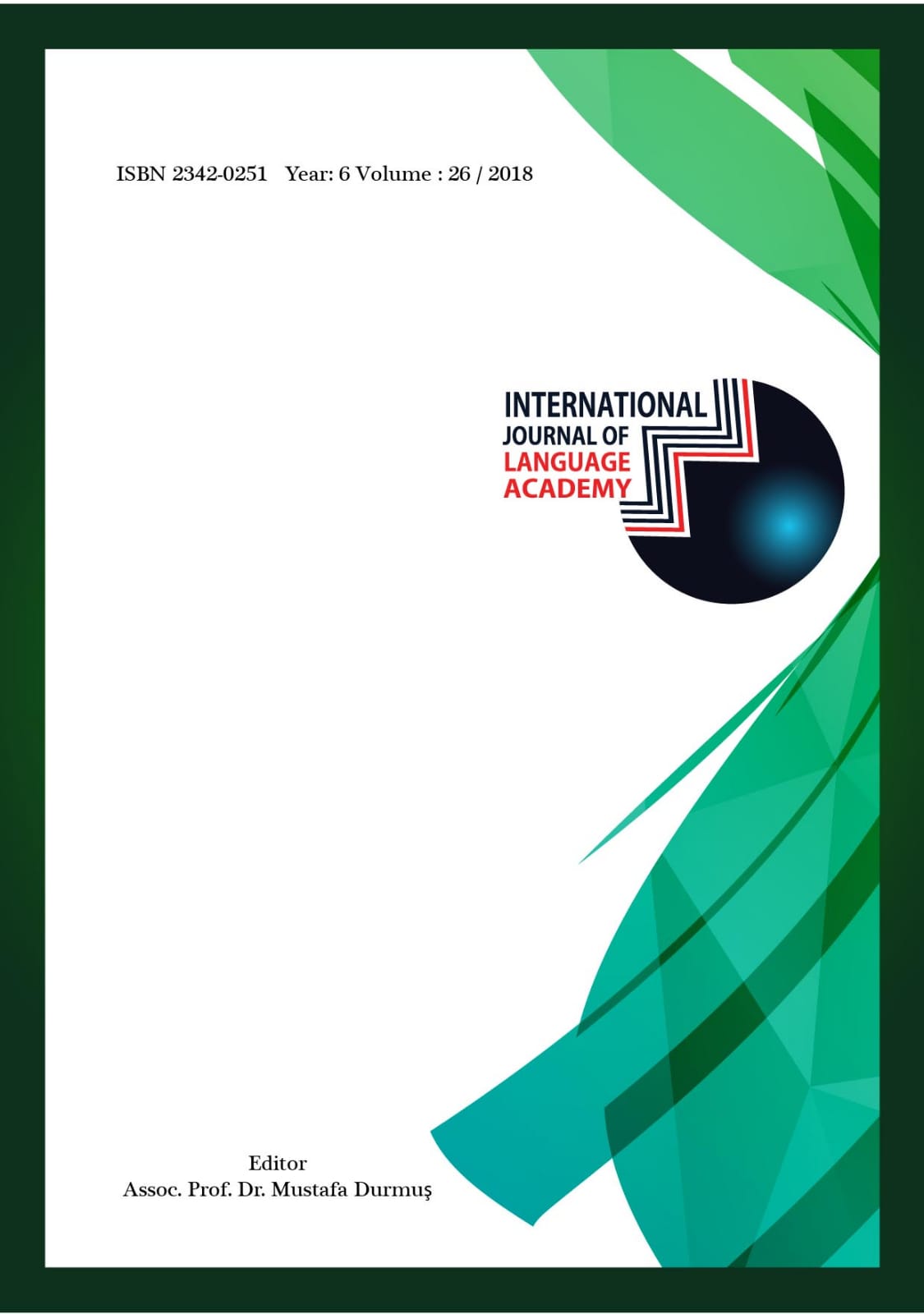Author :
Abstract
İktidar-aydın çatışması eskiden beri süregelen bir durumdur. Fakat “aydın kesim’’ iktidar için kimi zaman bir araç niteliğinde iken bazen de totaliter iktidar için büyük bir tehlike arz etmektedir. Aydın, halkın ve kitlenin göremediği “hakikat’’infarkında olan kimsedir. Sartre’in de belirttiği üzere “iktidar aydını iki rol için eğitmektedir: ilkinde onları hem araştırma uzmanı hem de egemen güçlerin hizmetkârı, daha açık bir ifade ile ‘geleneğin bekçileri’ yapmaktır’’. Haldun Taner’in 1949’da yazdığı ancak 1961 yılına gelinceye dek kimsenin oynamaya cesaret edemediği Günün Adamı adlı tiyatro eseri, çok partili yaşama geçiş döneminin siyasal yaşamını ele alan, siyasette kişisel çıkarların ne kadar etkin olduğunu en açık şekilde gösteren bir oyundur. Bu eser iki düzlemde ele alınabilir. İlk düzlemde sarsılan eski değerlerle, değişimden kişisel çıkarlar sağlama yönünde benimsenmiş çarpık değerler arasında kalan profesörün bocalaması; ikinci düzlemde isetek partili düzenden çok partili düzene geçişte ortaya çıkan siyasal sorunlar, ilişkiler ve olaylar sergilenir. Oyun yazarın sosyal gerçekçi sanat anlayışını yansıtmakta olup çok güzel bir eleştiri örneğidir. Ana karakter Profesör, politikaya atılmadan önce son derece dürüst ve manevi değerlere sahip bir kişiyken sözde çok idealist ve ahlaklı bir görünüme sahip ailesi, arkadaşları, sosyal çevresi tarafından politikaya itilir ve her türlü pisliğe batarak kişilik değiştirir. Oyunda Profesör, kendi varoluş mücadelesini - ahlâkî değerler üzerinde- verirken aile bireylerinin iktidara atılmak için nasıl bir tutkuyla Profesöre baskı yaptıklarını gösterir. Toplumsal statüye ulaşmak için etik değerlerin çiğnenmesi mubah olarak görülür. Ana karakterin etrafındaki herkes onu politikaya sürükleyerek ondan menfaat elde etme amacı güderken oyunun sonunda Profesörün itibarsızlaşmasına ve onurunun çiğnenmesinde de aktif rol alırlar. Aşk ve ilişki sorunsalı, menfaat ve tehdit üzerinden yürütülür. Atılan her adımın maddi bir karşılığı vardır. Politik âleminkirli tuzaklarla iktidara nasıl ulaştıkları, örneklerle adım adım aktarılır. Oyun aynı zamanda muhalefet ve iktidar çatışmalarının boyutunu da yansıtır. Haldun Taner, oyunun yazıldığı dönem Türkiye’sinin sosyal ve siyasi durumunu realist bir gözlemcilikle vermeyi ihmal etmez. Bu çalışmada iktidar-aydın çatışması ekseninde kültürel değerlerin siyasal hırslarla nasıl yozlaştığı ele alınmaya çalışılacaktır.
Keywords
Abstract
The conflict of power-intellectual has been an ongoing situation ever since. But the intelligentsia is sometimes in the capacity of a tool fort he power, sometimes it brings a great danger into existence fort the totalitarian power. The intellectual is the person aware of the truth that the people and the mass can not see. As Sartre has also noted, the power is training the intellectual for two roles. Firstly, it is to make them both research specialist and servant of the sovereign powers, keepers of tradition with a clearer expression. Haldun Taner wrote in 1949, but until 1961, no one dared to play named Man of the Day is a theater play that demonstrates the most clearly how effective self-interests are in politics, deals with the political life of transition period of the multi-party life. This study can be handled in two planes. İn the first plane, the professor's fallacy among the shaken old values and the distorted values adopted towards to provide self-interests from change, but in the second plane; the political problems, relations and events that occur during the transition from the order of single-party to the order of multi party is exhibited. The play has reflected the author's social realistic art appreciation, is a very good example of criticism. The main character professor is a person extremely honest and has spiritual values before being put into policy, is pushed to politics by his family, friends, social enviroment who so called have a very idealistic and moral appearance and changes his personality by sinking into all kinds of dirtiness. İn the play the professor shows how his family members are putting pressure on him with a passion to take power when he gives his own existence struggle on moral values. The violation of ethical values to achieve social status is seen as permissible. Everyone around the main character takes an active role in the disgualification of the professor and the violation of his honor at the end of the play in order to get benefit from him by dragging him into politics. Love and the problematic relationship are carried out through benefit and threat. There is a material provision of every step taken. How the political world reaches power with the dirty traps is told with examples step by step. The play also reflects the dimension of the conflicts between opposition and power. Haldun Taner does not neglect to give social and political situation with a realistic observer in Turkey of the period in which the play was written. İn this study, it will be tried to be handled how the cultural values degenerate with political ambitions on the axis of the power-intellectual conflict.





